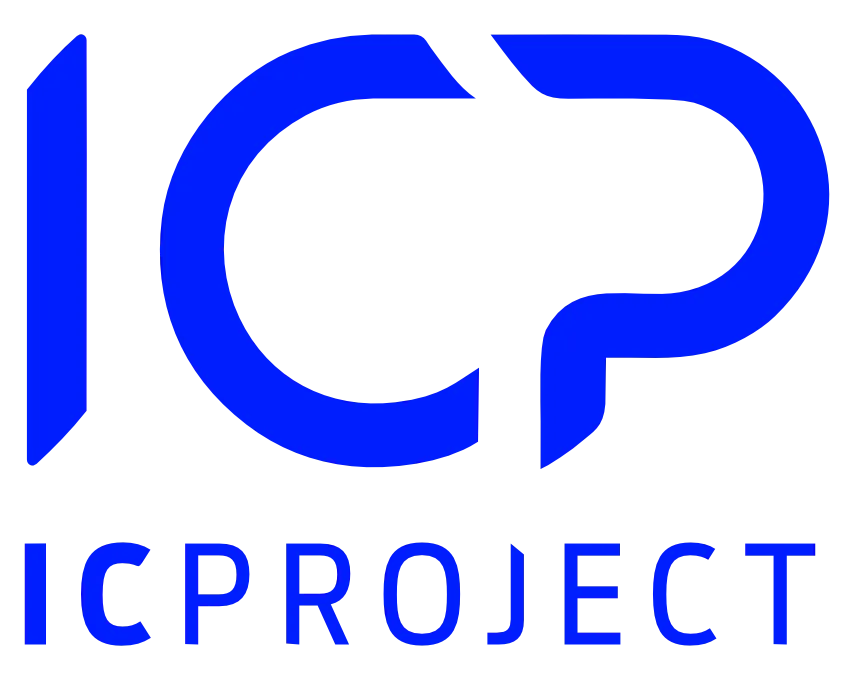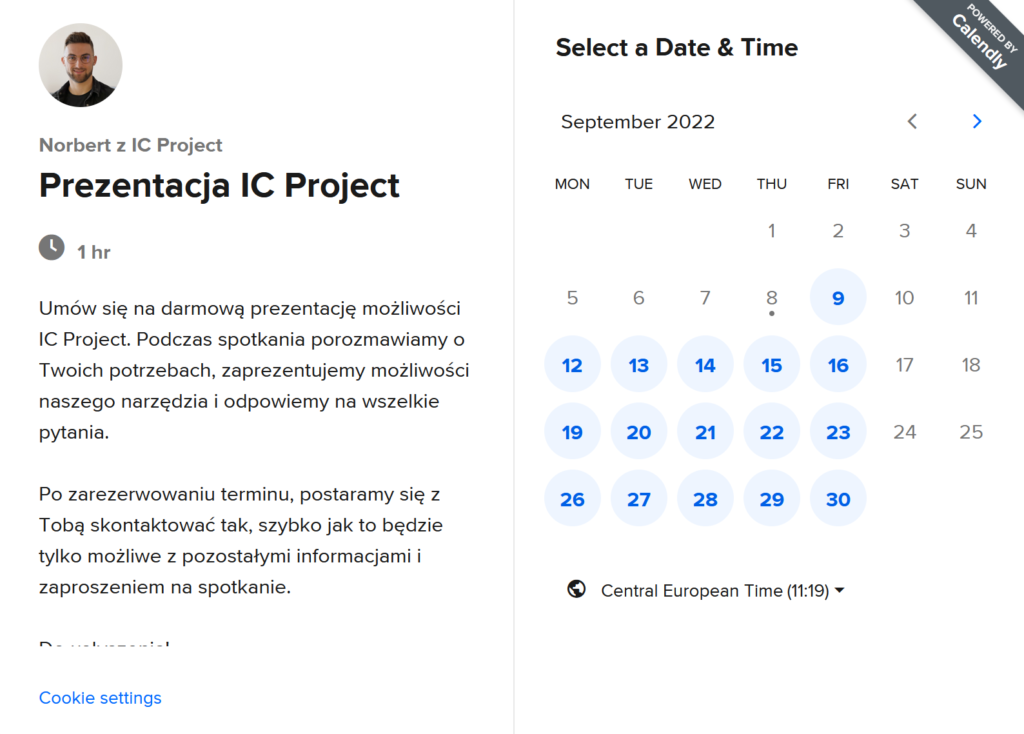Managing working time in a project environment is a unique challenge, especially for Project Managers trying to maintain a balance between estimation and reality. In today’s article, we’ll look at the issue from an expert perspective, looking at the key aspects of time estimation, the differences between estimation and time recording, the role of specialised tools, and practical steps to effective time management in a project.
Time estimation – how to get started?
A working time estimate is the determination of the estimated working time to be spent on a sample task that we have to complete. The estimation is usually what the project manager needs from each member of the project team and, on the other hand, as an employee you will be obliged or required to determine the sometimes approximate estimation.
A key question we can ask ourselves at the start: who can best estimate the working time of a certain task? Without your experience and expertise, this will be quite complicated. The problem will disappear when you know exactly how much time is worth estimating for a given task. Going back to the first situation, the most competent person will be the person who will be implementing it or the person who knows how the task will go in its execution and will be able to determine the planned working time for the task based on his or her own knowledge.
So if you are new to onboarding, just starting out in a certain field, don’t know the specifics of the job or are implementing a certain methodology, you are then looking for support. This support is easiest to get in conversation with the person who will be delegated the task or from someone who is experienced in a variety of tasks, knows the pace of work of others, and all the technical details to perform certain tasks. This is the first line of assistance and the optimum approach to begin effective time estimation. Each subsequent task will guarantee more detailed information.
Working time estimation vs time recording
Time estimation and time recording are two different terms, although both are related to time management in projects. In definition, time estimation is the process of determining the estimated time that is needed to perform a specific job or task on a project, while time recording is the process of recording the time that is actually spent on a specific job or task.
So here we have a clash of two worlds: the planned and the real world. Very often we estimate, and therefore plan, our working time, and this is usually translated into the context of a task. Record-keeping, on the other hand, can also refer to the task, but many companies also keep records in a system, e.g. from-to-when we are in the office or generally available at work.
We aren’t talking today about general time-keeping – of the I’m in, I’m not at the company: from-to. We’re taking everything in a project context. And the project context is not just how much you work, but how much it takes you to do an activity on that project. And this is the most important thing for us, it also poses an extremely demanding challenge for any project manager. Incorrect estimation, as well as general time management, leads to very wide turnarounds in a project.
How to support the estimation of working time with data?
A great deal of support in this respect is offered by specialised tools that have functionalities for measuring or reporting on working time. These types of programmes will automatically ensure that the data is processed with confidence and indicate how time-consuming a particular type of task really is.
On this subject, it is worth dividing the tools into two categories:
- project management software with features for measuring and reporting on working time.
- tools strictly for measuring and reporting on working time.
Project management programme with features for measuring and reporting on working time allows you to fully manage projects and tasks, but with automatic capabilities to determine not only the estimation of working time, but also to know the real time intensity of duties. The key thing about this is to bring everything together. You don’t go beyond one tool.
Example: IC Project, which combines project management with time measurement and reporting.
A tool strictly for measuring and reporting on working time is de facto a functional fragment of a comprehensive project management programme. Every tool of this type obviously offers the possibility of attaching time to a task, but these are just such a snapshot of full task or project management. Sometimes, however, they may even offer more strictly time-based functions because they simply specialise in this. But which is better for you? This is a subject for individual analysis. We would suggest a more comprehensive approach, but your needs will be paramount.
Examples: Toggl, TimeCamp or Clockify.
Recommendation: If you work with projects and tasks, it definitely makes more sense to combine these two aspects together. They are two planes that interpenetrate each other. One follows from the other. You plan time into a task, you calculate time into a task, you have tasks in a project. Separating one from the other can cause more chaos than benefit.
Is the measurement of working time on projects necessary for correct estimation?
It isn’t an obligation, but it is a great support for the person who manages the project. We are used to working on data in the current world, and it is measuring working time that offers us this data. This further allows us to confront plan vs reality. If we only plan and then do not verify, we will never move forward.
If you want to work effectively with projects, estimate working time accordingly and then make variables, adjustments, adapt your plans, you need hard data.
The most popular ways to measure working time are:
- time tracker that calculates working time automatically
- manual determination of working time spent
Using special tools, this is followed by full data visualisation, timesheets, tabular or visual reports. This is a huge support for any manager, but also on the part of the employee who reports the time. It is crucial to know how much time has already been reported, as mistakes in this aspect are not hard to make.
Plan ahead to avoid being surprised.
A perfect world unfortunately doesn’t exist, and therefore perfect projects don’t exist. In every job you have to anticipate potential changes, blockages to the work or technical problems. All of this can change your initial estimates in an instant, it may or may not. For this to be the case…

Always plan with some margin. Nobody spends their full working time on real work. We go for coffee, to eat, to talk, at our place we sometimes even play billiards. It’s quite natural to keep productivity high. If you don’t want to let yourself down and then rearrange tasks on your schedule then anticipate a little more time than the data says. If a project team member’s capacity slows down, you can easily find them a task. Remember that it’s also a good idea to schedule time for project meetings, which sometimes last a couple of nice hours.
Manage tasks and make decisions to have comprehensiveness of information.
To manage time effectively on projects, you need to have a comprehensiveness of information. If you don’t get this, you will never be able to adequately time-stage your work, compare it with real-world results, and thus effectively manage your time in a project environment.
You distribute the tasks, you manage the resources in the context of these tasks, you know the estimation of working time and you determine the potential deadlines for these tasks. You have information about other potential tasks, the fact that an employee will be on leave during a given period or that they need to attend a meeting about another project. If you don’t get the comprehensiveness of the information, you will easily get lost at the first possible turn, and that will be, for example, a project team member dropping out for the next two days. Why? Because you simply didn’t or didn’t know about it.
Action Plan for the situation: we don’t keep time records in the team, where do we start?
- Outline the purpose of introducing time recording.
- Determine how to measure and report on working time in an open discussion.
- Consider choosing an appropriate tool that fits the specifics of the team.
- Make time reporting a habit among employees.
- Don’t be discouraged by initial difficulties in time reporting.
- Consider the additional benefits to the team of time recording.
- Respond on an ongoing basis to situations that require adjustment.
Effective time management in a project environment isn’t just a challenge, it’s also key to project success. Analysing time estimates, using specialised tools, planning with margin and monitoring progress on an ongoing basis are key elements to avoid discrepancies between plan and reality. With these practices in place, project managers can effectively lead their team and deliver projects on time. We are confident that you will be able to extract the maximum from this article for the efficiency of your team, and thus time management on projects will jump to a completely different level than it is today.





